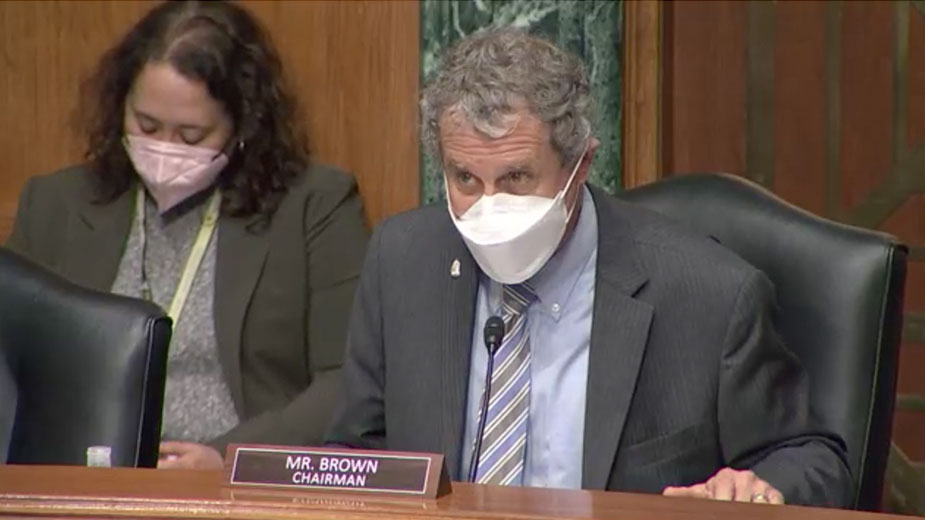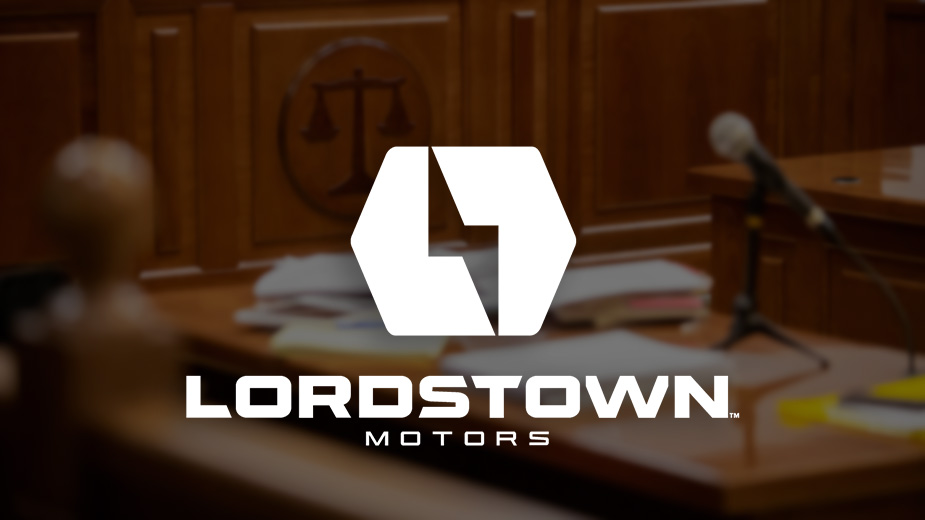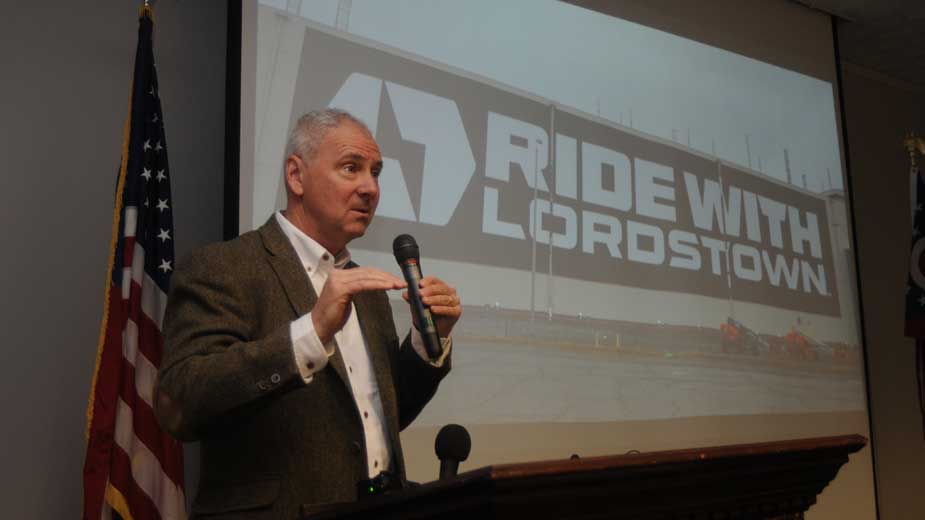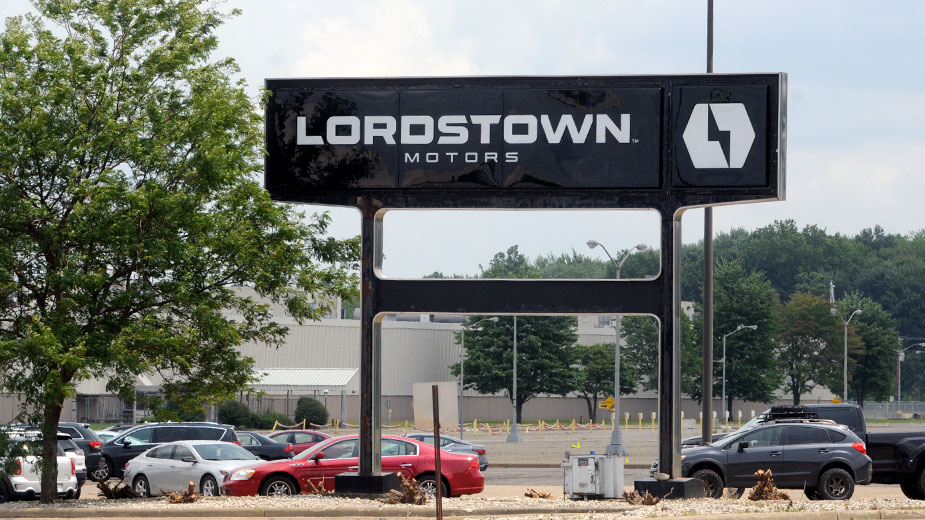Sen. Brown Questions SEC Chairman Over SPACs
YOUNGSTOWN, Ohio – U.S. Sen. Sherrod Brown, D-Ohio, said Tuesday that when Lordstown Motors Corp. went public through a special purpose acquisition company last year, institutional investors cashed in while retail investors were left in a quandary.
“It seems clear there were outside investors looking at this not as a long-term investment in a community with a proud manufacturing heritage and a talented workforce, but as a way to make a quick buck with no follow through,” Brown told U.S. Securities and Exchange Commission Chairman Gary Gensler during a Senate Committee on Banking, Housing and Urban Affairs hearing Tuesday.
Brown is chairman of the committee.
Lordstown Motors Corp., which operates out of the former General Motors assembly plant in Lordstown, merged with DiamondPeak Holdings Corp., a SPAC that took the automaker public in October 2020.
SPACs are essentially shell companies with no assets that are publicly traded and have two years to merge with another company.
Lordstown Motors’ stock soared to more than $31 per share after its merger. At 11 a.m. Tuesday the stock was hovering around $6.30 after months of disclosures related to exaggerations over preorders of Lordstown Motors’ all-electric Endurance pickup truck, which is scheduled for a limited launch at the end of this month.
The SEC and the U.S. Department of Justice have launched investigations into the company’s preorders and its merger with DiamondPeak.
“In a situation like that when investors make their money and pull out, companies break their promises and workers and communities pay the price,” Brown said. “What are the risks of the SPAC market and what can we do about it?” he asked Gensler.
Gensler responded that SPACs are riskier for retail investors because these companies don’t move through the same regulatory and disclosure process as an initial public offering would.
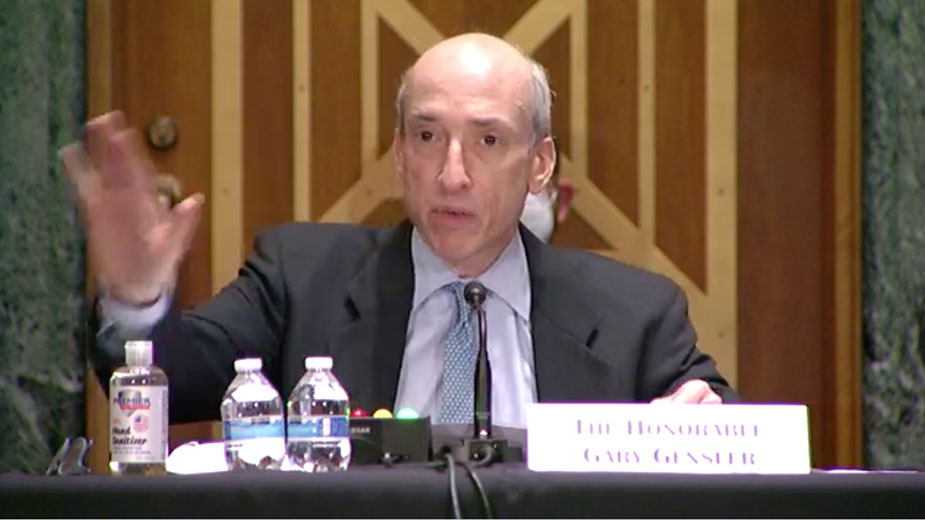
The SEC this year published stricter guidelines related to SPACs, and the chairman said that regulators are in the process of developing recommendations to govern how SPACs operate.
“We’re looking at greater disclosures and also looking at if there’s inherent conflicts along the way,” Gensler told Brown.
Once a SPAC merger is completed, institutional investors will sell their positions through a redemption right, leaving the shares open to retail investors, Gensler said.
“Retail investors are often left holding the dilution of the significant costs of the bankers and promoters,” he said.
The SEC‘s Advisory Committee released a memorandum last month calling for the agency to “regulate SPACs more intensively by exercising enhanced focus and stricter enforcement of disclosure rules.”
Lordstown Motors has been beset with problems since March, after a short-seller report alleged that the company faked preorders of the Endurance. Lordstown Motors, former CEO Steve Burns and Julio Rodriguez, former chief financial officer, resigned after an internal investigation found executives made misstatements regarding preorders of the vehicle.
In June, the company issued a going concern warning that it may not have enough cash to remain in business past May of next year.
Last month, Lordstown Motors named Daniel Ninivaggi, a former CEO of Icahn Enterprises L.P., as its new CEO.
“SPACs draw in companies that want to please Wall Street and sometimes make promises they can’t deliver,” Brown said during the hearing. “It’s a lot to unpack with what’s happening at Lordstown Motors, whether or not the company will be able to succeed – and I hope it does.”
Pictured at top: During a Senate Committee on Banking, Housing and Urban Affairs hearing Tuesday, U.S. Sen. Sherrod Brown addressed concerns over the impact of special purpose acquisition companies, or SPACs, on investing.
Copyright 2024 The Business Journal, Youngstown, Ohio.
